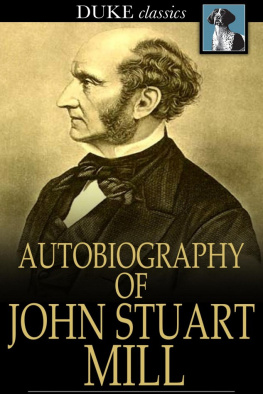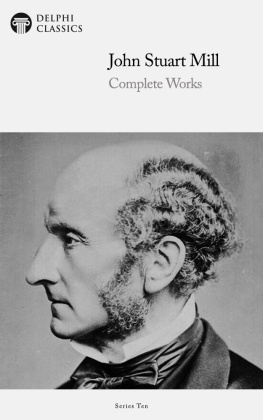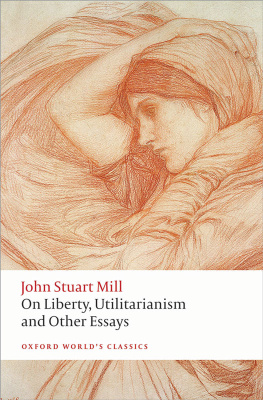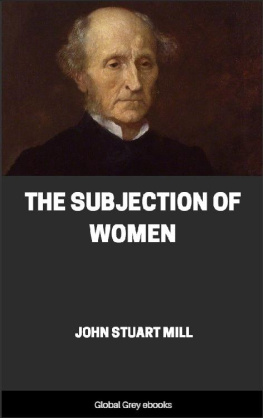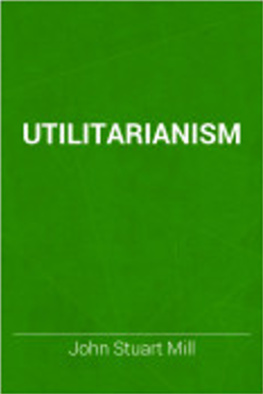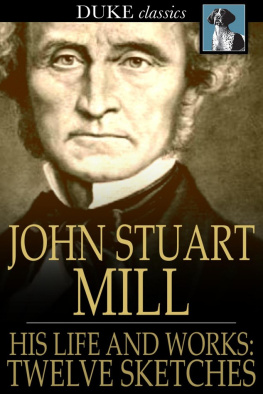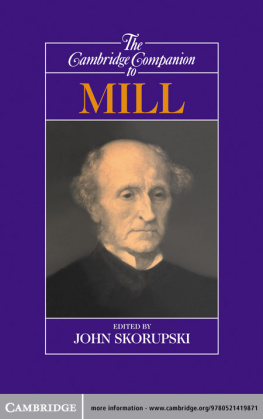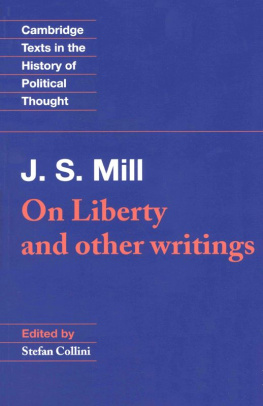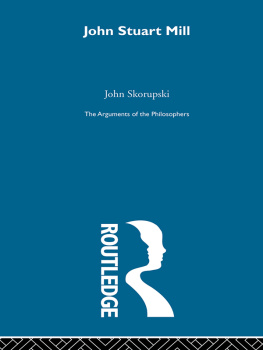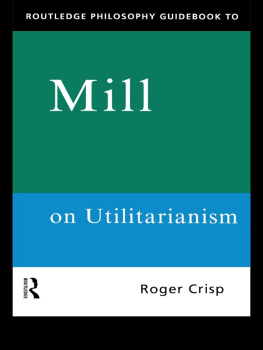John Stuart Mill - Essays on French History and Historians
Here you can read online John Stuart Mill - Essays on French History and Historians full text of the book (entire story) in english for free. Download pdf and epub, get meaning, cover and reviews about this ebook. year: 1985, publisher: University of Toronto Press, genre: Detective and thriller. Description of the work, (preface) as well as reviews are available. Best literature library LitArk.com created for fans of good reading and offers a wide selection of genres:
Romance novel
Science fiction
Adventure
Detective
Science
History
Home and family
Prose
Art
Politics
Computer
Non-fiction
Religion
Business
Children
Humor
Choose a favorite category and find really read worthwhile books. Enjoy immersion in the world of imagination, feel the emotions of the characters or learn something new for yourself, make an fascinating discovery.

- Book:Essays on French History and Historians
- Author:
- Publisher:University of Toronto Press
- Genre:
- Year:1985
- Rating:3 / 5
- Favourites:Add to favourites
- Your mark:
- 60
- 1
- 2
- 3
- 4
- 5
Essays on French History and Historians: summary, description and annotation
We offer to read an annotation, description, summary or preface (depends on what the author of the book "Essays on French History and Historians" wrote himself). If you haven't found the necessary information about the book — write in the comments, we will try to find it.
Essays on French History and Historians — read online for free the complete book (whole text) full work
Below is the text of the book, divided by pages. System saving the place of the last page read, allows you to conveniently read the book "Essays on French History and Historians" online for free, without having to search again every time where you left off. Put a bookmark, and you can go to the page where you finished reading at any time.
Font size:
Interval:
Bookmark:
COLLECTED WORKS OF JOHN STUART MILL
VOLUME XX
The Collected Edition of the Works of John Stuart Mill has been planned and is being directed by an editorial committee appointed from the Faculty of Arts and Science of the University of Toronto, and from the University of Toronto Press. The primary aim of the edition is to present fully collated texts of those works which exist in a number of versions, both printed and manuscript, and to provide accurate texts of works previously unpublished or which have become relatively inaccessible.
Editorial Committee
J. M. ROBSON, General Editor
HARALD BOHNE, ALEXANDER BRADY, J. C. CAIRNS ,
J. B. CONACHER, D. P. DRYER, MARION FILIPIUK ,
FRANCESS HALPENNY, S. HOLLANDER, R. F. MCRAE ,
IAN MONTAGNES, MARGARET PARKER, F. E. L. PRIESTLEY ,
ANN P. ROBSON, F. E. SPARSHOTT
by JOHN STUART MILL
Editor of the Text
JOHN M. ROBSON
Professor of English,
Victoria College, University of Toronto
Introduction by
JOHN C. CAIRNS
Professor of History,
University of Toronto

www.utppublishing.com
University of Toronto Press 1985
Toronto and Buffalo
ISBN 0-8020-2490-4
London: Routledge & Kegan Paul
ISBN 0-7100-9475-2
Canadian Cataloguing in Publication Data
Mill, John Stuart, 1806-1873
[Works]
Collected works of John Stuart Mill
Includes bibliographies and indexes.
Partial contents: v. 20. Essays on French history and historians.
ISBN 0-8020-2490-4 (v. 20)
1. Philosophy Collected works. 2. Political science Collected works. 3. Economics Collected works. I. Robson, John M., 1927
II. Title.
B1602.A2 1963 192 C64-000188-2
This volume has been published
with the assistance of a grant
from the Social Sciences
and Humanities Research Council
of Canada
, by John C. Cairns
, by John M. Robson
JOHN C. CAIRNS
JOHN MILLS INTEREST IN FRENCH PUBLIC LIFE between the two empires is somewhat flatly proposed in his Autobiography. The casual reader of the few and sober pages alluding to his lifelong acquaintance with the land, the people, and the history might not readily grasp what France had been to him: not merely a window on the wider cultural world, but a laboratory of intellectual exploration and political experimentation, and a mirror, the clearest he knew, in which to see what preoccupied him in England. There were times when he thought they did order this matter better in France, times when he did not; times even when his criticisms of the faults he perceived in the French character approached in severity his denunciations of faults in the English. But sympathetic or censorious, and preoccupied with responsibilities and problems in England, he followed French thought and French public life more closely perhaps than any other Englishman of his time. France offered not only the most exciting intellectual and political spectacle in Europe, but an instructive angle of vision from which to perceive England. Frances history, its men of thought and action were as integral a part of Mills education as the famous tutorship of his father and Bentham had been. Like the early philosophes, he eagerly sought out the stimulating relativity of another society.
The essays in this volume, mostly occasional pieces on revolution and history, span the two decades from youth to middle age, from the embattled liberalism of the opposition under the rule of Charles X (set against the Tory administrations of Canning and Wellington) almost to the eve of the Second Empire. At their centre is the Revolution of 1789, cataclysmic, still mysterious, the ultimate implications of which were far from clear, and about which Mill grew increasingly uncertain. He followed the revived debate of this great affair with intense interest. By no means uncommitted among its protagonists, he tried to weigh the evidence and extract the lessons. Avid for fresh insights, scornful of uncongenial interpretations, he came to see that 1789 could not by itself provide what he wanted. He cast about more broadly for the grand hypothesis that would situate the age of revolution through which he was living and illuminate the whole course of European civilization. Finally he searched for a philosophy and a science of history. Following at the same time the progress of the struggle for liberty and order in France, he commented and judged and published his opinions until the aftermath of the Revolution of 1848 betrayed the high liberal hopes of February. When for the second time he witnessed the collapse of liberalism, Mill fell silent. He had found and absorbed what he sought from French thought; he did not believe that for the foreseeable future French public life had instruction to offer; his radical and democratic enthusiasms were muted. Thereafter he continued to observe; he continued to travel in France; he was led by the accident of his wifes death there to take up his last residence in France. But he did not write publicly about it. Writing publicly about it belonged to an earlier and more hopeful time.
THE FRENCH EDUCATION OF JOHN MILL was, like its English counterpart, precocious, thanks not only to his fathers ambition but also to the hospitality of General Sir Samuel Bentham and his wife. Lady Bentham particularly had a clear notion of what was good for her young charge; the boy was willing and the father acquiescent. The long summer season of 1820 in southwest France turned into a year, in which the agreeable pleasure of swimming in the shadow of the Pont du Gard was mixed with attention to serious studies and precise accounts of things seen, done, and learned from Toulouse and Montpellier to Paris and Caen.
John Mill would recollect that he had returned home in July 1821 with many advantages. He singled out three: a familiar knowledge of the French language, and acquaintance with the ordinary French literature, the advantage of having breathed for a whole year the free and genial atmosphere of Continental life, and a strong and permanent interest in Continental liberalism, of which [he] ever afterwards kept [himself] au courant, as much as of English politics.
John Mill was addicted to recording facts and figures. Yet it is clear from the reports he shaped to his fathers expectation that he was not indifferent to the land. He saw much of it then; later he tramped over large stretches of it, seeking a return to health. His letters reveal the profound impact on him of the magnificent French countryside: I never saw anything more lovely than the Peyrou & its view this evening just after sunset, he wrote Harriet from Montpellier in December 1854; everything was pure & the tone that of the finest Poussin.
Following his year among the French, Mills attentions were again absorbed by his fathers curriculum and his own self-education. This included Condillac and a first appreciation of the French Revolution, but it seems to have left no room for broader pursuit of his continental interests. France had stimulated his desire to travel, but, still a lad, he spent holidays with his family in the country; later in the 1820s, with no more than a month off from his responsibility at India House, he settled for walking tours with friends in the English counties. Ten years passed before his return to France. But he constantly followed its public life; as early as April 1824 he sprang to the defence of French liberalism under His commitment to France was made long before the first of the intellectual encounters (if we except the brief friendship with the future chemist Antoine Jrme Balard during his year with the Benthams) that accompanied his reading of the political scene.
Next pageFont size:
Interval:
Bookmark:
Similar books «Essays on French History and Historians»
Look at similar books to Essays on French History and Historians. We have selected literature similar in name and meaning in the hope of providing readers with more options to find new, interesting, not yet read works.
Discussion, reviews of the book Essays on French History and Historians and just readers' own opinions. Leave your comments, write what you think about the work, its meaning or the main characters. Specify what exactly you liked and what you didn't like, and why you think so.

